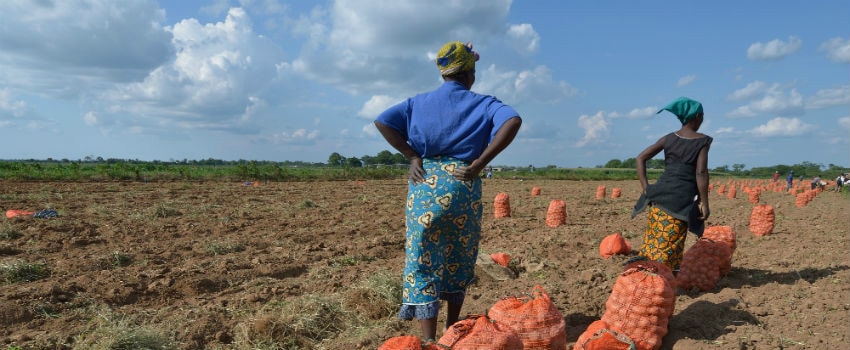
According to a recent report by international aid agency Oxfam, despite the fact that many governments have pledged to provide funding, small farmers living in poor countries are not receiving the help they require in order to make sure their families are fed and adapt to climate change. Oxfam analysed agricultural policies and public investments made in a number of developing countries and found that very little funding is flowing to small-scale farmers in order to help them build resilience to climate change. The aid agency also found it impossible to determine how much money is reaching female farmers who are particularly susceptible to climate change.
Money being used for other purposes
Oxfam says that instead of providing funding to farmers, governments have been diverting money towards making infrastructure investments and private sector initiatives in richer parts of the countries that were analysed. In the developing world, female farmers make up an average of 43 per cent of the total number of farmers. However, these women face barriers to access land and credit, they have very little training and this means they produce between 20 to 30 per cent less food than men. By closing the gender gap millions of people would be lifted out of poverty and starvation.
Very little money is being donated and utilised
The countries Oxfam looked at were finding it difficult to attract enough funding to help them adapt to climate change. In Pakistan for example, only 26 per cent of the $1.17 billion that was received by the country in 2014 to tackle climate change was used for that purpose. Nigeria is another country that is suffering, with just $15 million having been donated for climate change adaption as of May 2017.
The Paris Agreement
Oxfam is urging the international community to meet the goals set by the Paris Agreement and increase funding to help communities adapt to climate change. The aid agency is also calling on the governments of developing countries to increase funding for female farmers. African countries under the Maputo Declaration committed to spend 10 per cent of their national budget on agricultural development. Ghana was the only country that came close to meeting this target in 2010. The average amount spent by countries on the continent between 2010-2015 was just 5.5 per cent.
Governments not doing enough
According to Oxfam, governments of all the countries that were studied were doing very little to ensure that female farmers benefit from climate and agricultural funding which is insufficient to begin with. In Nigeria for example, climate change policies do little more than encourage females to take part in initiatives however they do little more than that.





